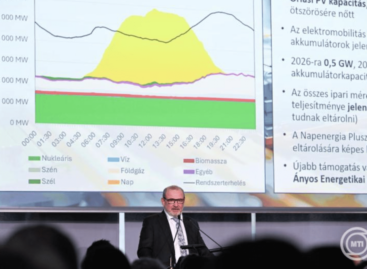The single market would get a new boost: EU strategy to break down trade barriers
The European Commission is set to revamp the single market with a new strategy: the aim is to boost the EU’s economic performance and competitiveness by removing trade barriers between member states, particularly with the US and China. The plan also includes harmonising labelling rules, improving digital administration and speeding up the creation of companies as key measures.
 The single market has been in place since 1987, but economic integration between member states is still hampered by a number of national regulations. The International Monetary Fund (IMF) estimates that these restrictions result in an effective tariff effect of 44% for goods and 110% for services. The Commission calculates that a 2.4% increase in internal trade could offset a 20% drop in US exports – a particularly pressing challenge given Donald Trump’s tariff-raising policy.
The single market has been in place since 1987, but economic integration between member states is still hampered by a number of national regulations. The International Monetary Fund (IMF) estimates that these restrictions result in an effective tariff effect of 44% for goods and 110% for services. The Commission calculates that a 2.4% increase in internal trade could offset a 20% drop in US exports – a particularly pressing challenge given Donald Trump’s tariff-raising policy.
A key element of the strategy is the unification of labelling rules: currently, the different national regulations mean significant additional costs for businesses. In addition, the introduction of digital product passports is on the agenda, which would make the origin, composition and sustainability characteristics of products more transparent. By breaking down administrative barriers, a program to be launched next year aims to enable a company to start operating within 48 hours of registration.
Although the strategy covers many sectors, the financial sector – which has a particularly low level of integration within the EU – is not included. Its development is envisaged in a separate plan, the Investment and Savings Union.
However, the key to success is cooperation between Member States: according to the Commission’s proposal, each government should have a responsible person who holds accountable the EU market development steps taken at national level. The progress of the plan would be assessed in 2026 and, if necessary, a new package of laws could follow in 2027.
Strengthening the single market is not only an economic issue, but also a geopolitical response – in a world where the bloc increasingly needs its own internal strength.
Related news
The economic sentiment index deteriorated in the euro area and the EU in February, but improved in Hungary
🎧 Hallgasd a cikket: Lejátszás Szünet Folytatás Leállítás Nyelv: Auto…
Read more >EU adopts rule to prevent destruction of unsold clothing
🎧 Hallgasd a cikket: Lejátszás Szünet Folytatás Leállítás Nyelv: Auto…
Read more >The EU’s 2050 carbon neutrality targets are unrealistic
🎧 Hallgasd a cikket: Lejátszás Szünet Folytatás Leállítás Nyelv: Auto…
Read more >Related news
Festival buzz at the 60th anniversary EuroShop trade fair
🎧 Hallgasd a cikket: Lejátszás Szünet Folytatás Leállítás Nyelv: Auto…
Read more >Historic price reduction at ALDI
🎧 Hallgasd a cikket: Lejátszás Szünet Folytatás Leállítás Nyelv: Auto…
Read more >A stable compass in the Hungarian FMCG sector for 20 years
🎧 Hallgasd a cikket: Lejátszás Szünet Folytatás Leállítás Nyelv: Auto…
Read more >








